News
News coverage of recent work:
Media contact: Dean R. Owen; dean1227@uw.edu; (+1) 253-906-8645
News coverage of recent work:
Media contact: Dean R. Owen; dean1227@uw.edu; (+1) 253-906-8645

March 02, 2026 | by BBI Communications
“Oftentimes, on a scientific project, you’re building off of what other people have developed. But a lot of this work has never been done before. And, that makes it exciting.”
Read More
February 27, 2026 | by BBI Communications
Miller exains a new and streamlined method for sequencing blood and tissue samples
Read More
February 26, 2026 | by BBI Communications
Thompson is one of the featured presenters at the Ninth Annual Mutational Scanning Symposium, March 25 through 27 in Melbourne, Australia
Read More
February 24, 2026 | by BBI Communications
‘A fountain of creative and impactful ideas’
Read More
January 29, 2026 | by BBI Communications
“A testament to the power of collaboration, curiosity, and innovation in advancing variant effect research.”
Read More
January 22, 2026 | by BBI Communications
‘An exceptional opportunity for early career scientists’
Read More
January 20, 2026 | by BBI Communications
Professor Yang Jianrong, a researcher and professor at with Sun Yat-sen University in Guangzhou, China, is a confirmed speaker at the upcoming Ninth Annual Mutational Scanning Symposium, March 25-27, in Melbourne, Australia.
Read More
January 15, 2026 | by BBI Communications
'As biologists, we’re still very much transitioning from understanding biology to engineering it'
Read More
December 23, 2025 | by BBI Communications
It’s been an eventful year for the Brotman Baty Institute. Here are several exceptional events and peer-reviewed papers from 2025.
Read More
December 16, 2025 | by BBI Communications
BBI’s Ivan Woo, a member of the Starita Lab, is the first author on a new preprint paper contributing to the understanding of how changes in the BARD1 gene affect cancer risk
Read More
December 03, 2025 | by BBI Communications
‘He’s not only delivered technically, but he’s also translated those advances to illuminate the genetic basis of rare disease’
Read More
November 24, 2025 | by BBI Communications
‘Building cellular technologies to record and capture live data from millions of cells as those cells change and respond to their environments’
Read More
November 12, 2025 | by BBI Communications
‘Long-read sequencing has ushered in new diagnostic opportunities in rare diseases’
Read More
November 10, 2025 | by BBI Communications
'We aim to strike a balance between theoretical, computational, and experimental approaches to ensure comprehensive coverage of the field.'
Read More
November 05, 2025 | by BBI Communications
Marazzano Colón admits he has taken an “interdisciplinary path” to become a computational biologist in the lab of BBI's Cole Trapnell, Ph.D.
Read More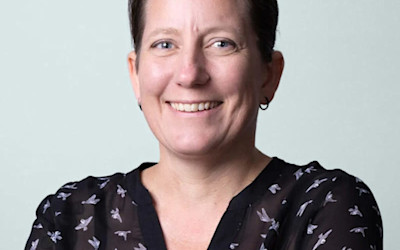
October 17, 2025 | by BBI Communications
‘There has been such a growing trajectory in this field; there is no other meeting like this one.’
Read More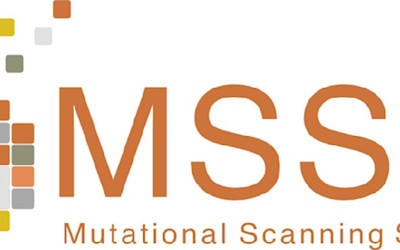
October 01, 2025 | by BBI Communications
'This conference has become a cornerstone event helping to lead the academic study and clinical application of genomics.'
Read More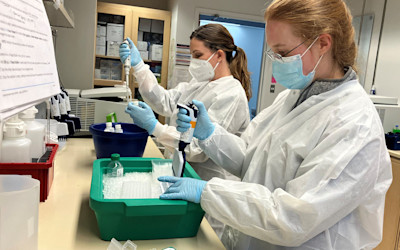
September 30, 2025 | by BBI Communications
“It’s exciting to see the scale of it all.”
Read More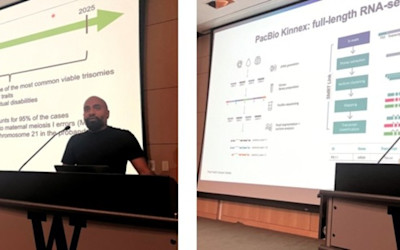
September 24, 2025 | by BBI Communications
Sophie Kogut, a graduate student in the Blanco-Melo lab at the Fred Hutchinson Cancer Center, and F. Kumara Mastrorosa, Ph.D., a Post-doctoral Scholar, in the Eichler Lab at the UW, offer insights
Read More
September 02, 2025 | by BBI Communications
Subsequent work represents ‘the next frontier of variants effect modeling’
Read More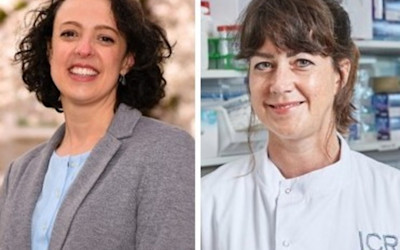
August 29, 2025 | by BBI Communications
The working group is taking on a task much-needed and long and overdue.
Read More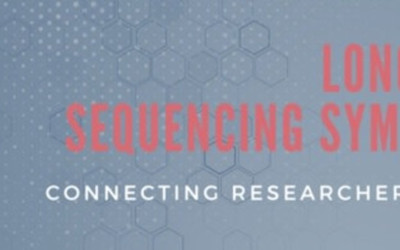
August 27, 2025 | by BBI Communications
'The momentum for wider use of long-read sequencing and collaboration among researchers and clinicians is growing in the Puget Sound.' Danny Miller, M.D., Ph.D.
Read More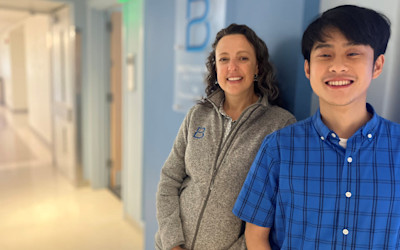
August 25, 2025 | by BBI Communications
Ivan Woo is committed to educating, training, and mentoring the next generation of scientists. He is only 22 years old.
Read More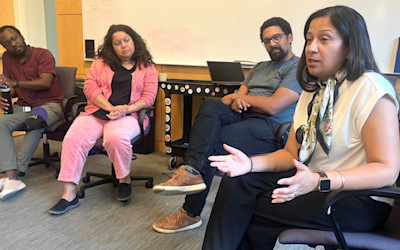
August 04, 2025 | by BBI Communications
"The summer intern networking panel is my favorite BBI event every year," says BBI's Lea Starita.
Read More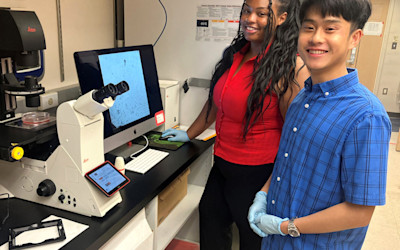
July 30, 2025 | by BBI Communications
In the Starita Lab, her projects involve applying chemotherapy treatments to increase the sensitivity of the Saturation Genome Editing assay
Read More
July 29, 2025 | by BBI Communications
Findings highlight how the burden of variants of uncertain significance falls unevenly on patients
Read More
July 23, 2025 | by BBI Communications
“Once you leave bench science, you’re not going back. For me it was a great choice.”
Read More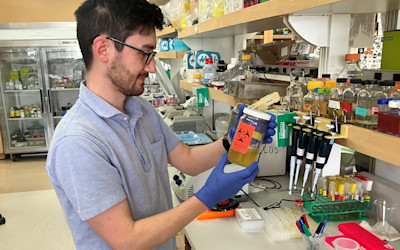
June 26, 2025 | by BBI Communications
‘Hardest part is just sticking with it and being adaptable’
Read More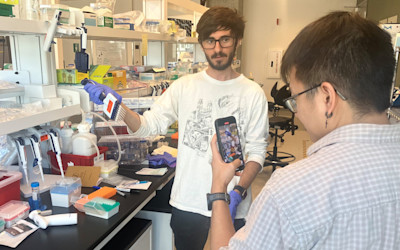
June 24, 2025 | by BBI Communications
‘I see science as physical craftsmanship… it’s a finely choreographed motion’
Read More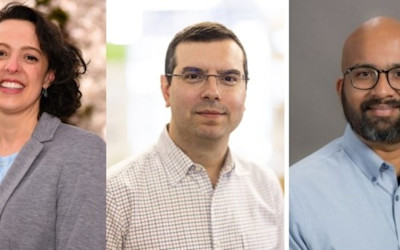
June 17, 2025 | by BBI Communications
New survey among genetics professionals indicates a strong demand for a comprehensive database with standardized metrics to support using functional evidence in clinical variant interpretation
Read More
June 11, 2025 | by BBI Communications
‘Leading Seattle forward as the epicenter of synthetic biology’
Read More
June 09, 2025 | by BBI Communications
BBI’s Shawn Fayer and Noelia Ferruz Capapey, a Group Leader at the Centre for Genomic Regulation in Barcelona, reflect on the 8th annual Mutational Scanning Symposium.
Read More
May 30, 2025 | by BBI Communications
‘Field of VEPs has grown rapidly, without clear standards’
Read More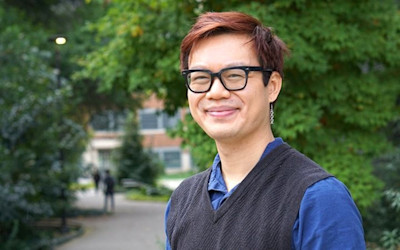
May 28, 2025 | by BBI Communications
SASC plans its fifth quarterly meeting
Read More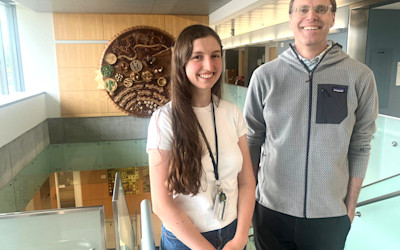
May 15, 2025 | by BBI Communications
‘She isn't satisfied with a superficial or inexplicable result, one of the hallmarks of a successful scientist’
Read More
May 12, 2025 | by BBI Communications
The award recognizes an employee who “has made an outstanding achievement or provides ongoing excellence through effective collaboration.”
Read More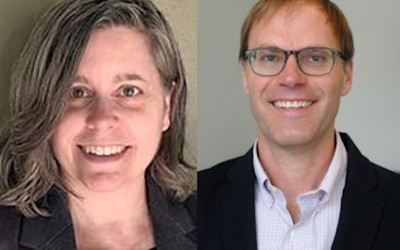
April 30, 2025 | by BBI Communications
‘Useful for diagnoses, family planning, and to test other relatives at risk’
Read More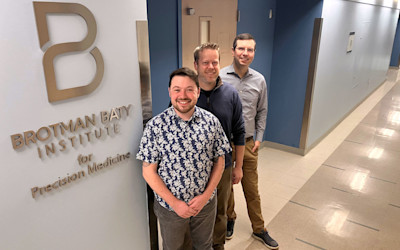
April 16, 2025 | by BBI Communications
Fifth grade teacher ‘allowed me to establish a life-long knack and passion for STEM’
Read More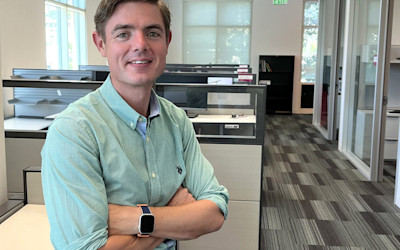
April 10, 2025 | by BBI Communications
‘The science in the field of genetic variants is moving really fast and the Mutational Scanning Symposium offers great opportunities to stay connected with other institutions and colleagues at its forefront.’
Read More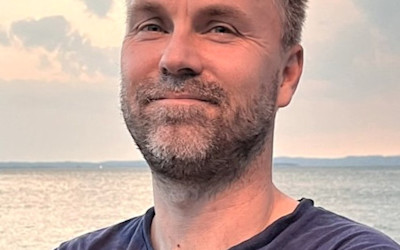
April 07, 2025 | by BBI VCommunications
Kresten Lindorff-Larsen, one of the speakers at the 2025 Mutational Scanning Symposium, discusses his upcoming presentation and his background.
Read More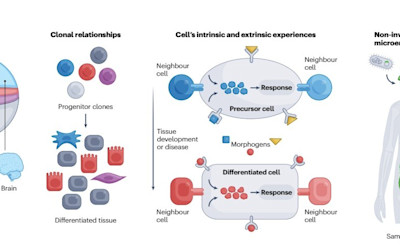
March 25, 2025 | by Excerpted from Nature Reviews Genetics
‘Further our understanding of cell decisions over time, given their cellular ancestry and past cell trajectories, and in response to external signals and spatial context’
Read More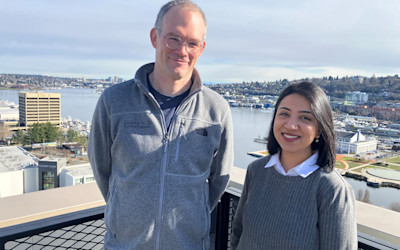
March 20, 2025 | by BBI Communications
As a teenager, Hina Iftikhar set her sights on practicing medicine in her home country of Pakistan. But her father, a physician, was convinced she could “do much more interesting things in life than become a doctor.”
Read More
March 17, 2025 | by BBI Communications
‘We were able to precisely resolve the genetic and molecular basis of (the individual patient’s) condition, thereby providing both her family and care team with answers to help support her moving forward.’
Read More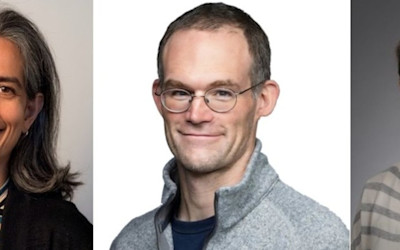
March 06, 2025 | by Washington Research Foundation
Five-year grant, one of the largest in the foundation's history, will support groundbreaking work by Brotman Baty Institute and the Allen Institute
Read More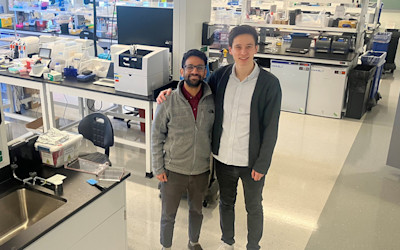
February 26, 2025 | by BBI Communications
‘Unique blend of creativity, technical mastery, and unwavering enthusiasm’
Read More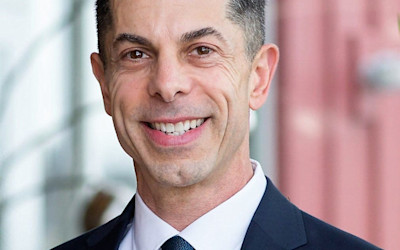
February 24, 2025 | by GeneDX Communications
New study reveals widespread use of rapid genome sequencing demonstrates more critically ill infants should be tested to reduce missed genetic conditions and promote equitable care for infants at their most critical stage
Read More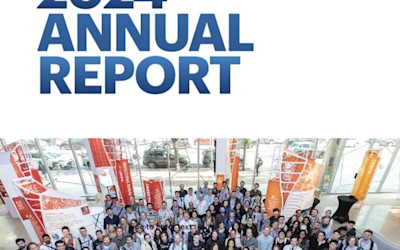
February 21, 2025 | by BBI Communications
The Atlas of Variant Effects Alliance has chosen “gratitude” as the theme for its 2024 Annual Report and for good reason.
Read More
February 20, 2025 | by BBI Communications
Dr. David Adams, founding member of the Atlas of Variant Effects Alliance, will be a featured speaker at the Eighth Annual 2025 Mutational Scanning Symposium, May 21 to 23, in Barcelona
Read More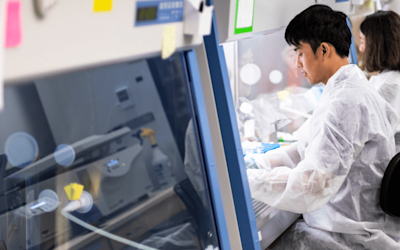
February 13, 2025 | by Matt Fitzsimons, UW Medicine
Accelerating discoveries: UW Medicine and the Brotman Baty Institute lead a worldwide effort; Scientists are on track to map 1,000 genes by 2030; and Patients and families are already seeing benefits.
Read More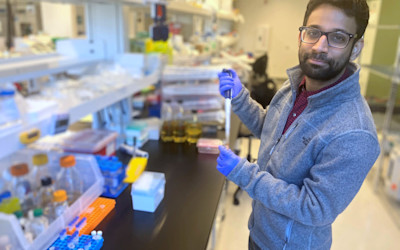
February 12, 2025 | by BBI Communications
Dr. Pinglay and UW Genome Sciences researchers recently published, “Multiplex generation and single cell analysis of structural variants in mammalian genomes” in the journal Science. That study, in tandem with another paper by the Wellcome Sanger Institute, advance the study of structural variants.
Read More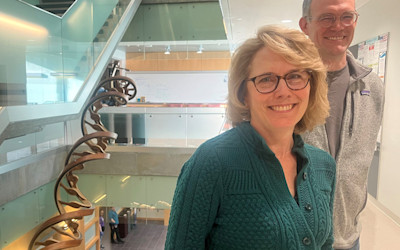
January 28, 2025 | by BB Communications
A 25-plus-year career in science and operations management bookended by fascinating start-ups
Read More
January 27, 2025 | by BBI Communications
‘Hopeful our work will enable not just us – but researchers everywhere – in a few years to readily obtain synthetic DNA’
Read More
January 24, 2025 | by BBI Communications
Register now for the 8th Annual Mutational Scanning Symposium, May 21st through 23rd in Barcelona: “Mapping and Modeling Variant Effects at Scale.”
Read More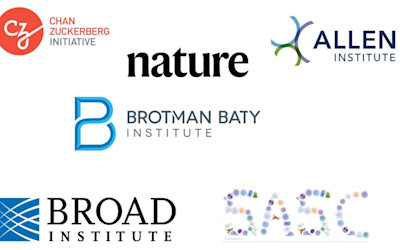
January 07, 2025 | by BBI Communications
The start of a new year offers the opportunity to explore organizational highlights over the previous 12 months. Here are several exceptional events and peer-reviewed papers from 2024.
Read More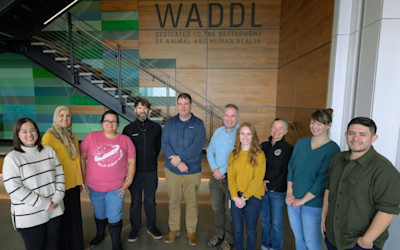
January 07, 2025 | by BBI Communications
‘Animals represent an important potential for human pathogens'
Read More
January 06, 2025 | by BBI Communications
‘Critical step toward CZI’s mission to cure, prevent, or manage diseases by end of 21st Century’
Read More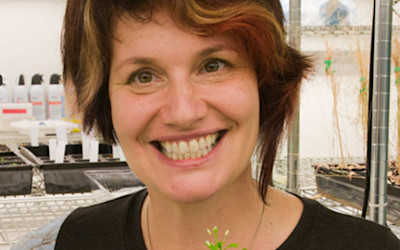
January 06, 2025 | by BBI Communications
There are about 8.2 billion people in the world and each one has their own set of common and rare genetic variants. Moreover, environmental exposures determine each person’s risk of disease and potential prognosis.
Read More
December 04, 2024 | by BBI Communications
‘Bringing together the best of large-scale science and philanthropy’
Read More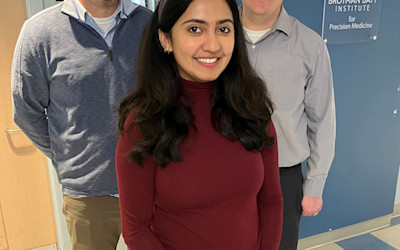
December 03, 2024 | by BBI Communications
Nikhita Damaraju works in the family business.
Read More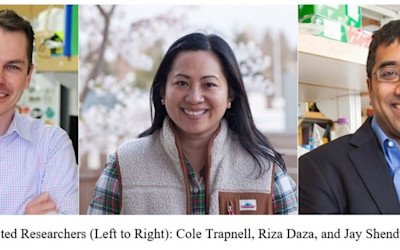
December 02, 2024 | by BBI Communications
Three BBI scientists - Riza Daza, Jay Shendure, and Cole Trapnell - have been recognized as “Highly Cited Researchers”
Read More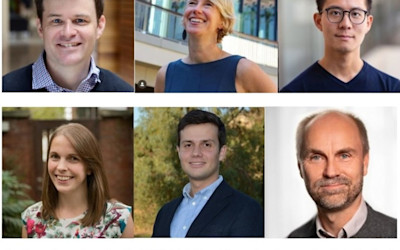
November 05, 2024 | by BBI Communications
A dozen experts on subjects, ranging from computational biology to bioengineering to AI, have been confirmed for the Eighth Annual Mutational Scanning Symposium, May 21st through 23rd in Barcelona, Spain.
Read More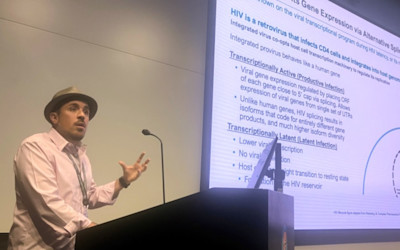
November 01, 2024 | by BBI Communcations
[Editor’s note: BBI’s Danny Miller, M.D., Ph.D., hosted the second and now annual Long Read Sequencing Symposium on October 28th at the Seattle Children’s Research Institute. The event was hosted by PacBio. Here, Miller shares his observations on the symposium.]
Read More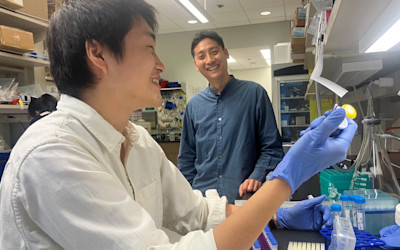
October 28, 2024 | by BBI Communications
“By building something new, we can have a deeper understanding of how that new creation functions.” Nobuhiko Hamazaki
Read More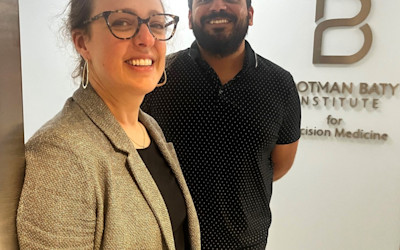
October 23, 2024 | by BBI Communications
‘Writing music is similar to writing a research paper’
Read More
October 21, 2024 | by BBI Communications
‘Tight integration of AI and experiments needed to optimize allocation of resources and deliver high-quality variant effect information’
Read More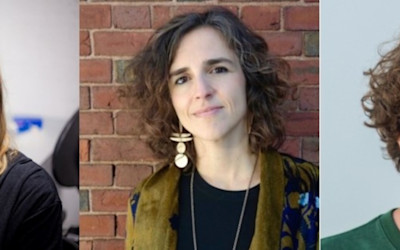
October 17, 2024 | by BBI Communications
The 8th annual Mutational Scanning Symposium will be held in Barcelona, Spain, May 21-23, at the Barcelona Biomedical Research Park
Read More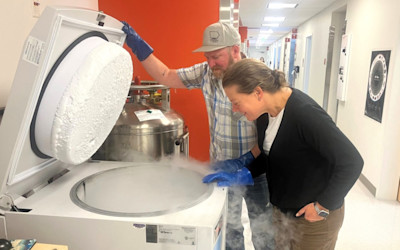
October 01, 2024 | by BBI Communications
'I’m not really an East Coast person. It’s more laid back here in Seattle. People are friendlier, and there’s the beautiful natural environment – the water, the mountains.'
Read More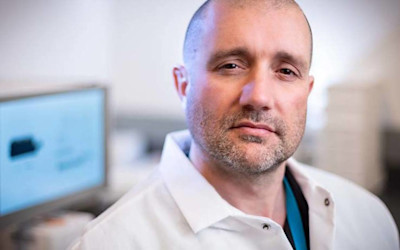
September 30, 2024 | by BBI Communications
[NOTE: Dr. Furlan, M.D. is a physician at Seattle Children's, an assistant professor in the Clinical Research Division at Fred Hutchinson Cancer Center, is scheduled to present at the BBI-sponsored Long-Read Sequencing Symposium on October 28th at the Seattle Children’s Research Institute.]
Read More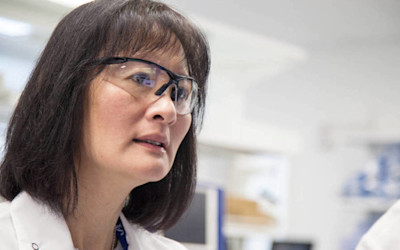
September 30, 2024 | by BBI Communications
[NOTE: Dr. Wei, Ph.D., is the Director of the Northwest Genomics Center and a Professor of Genome Sciences at the UW. She is scheduled to present at the BBI-sponsored Long-Read Sequencing Symposium on October 28th at the Seattle Children’s Research Institute.]
Read More
September 19, 2024 | by BBI Communications
Symposium on advancing cancer vaccines will convene 'national leaders in vaccine design and expert immune-oncologists'
Read More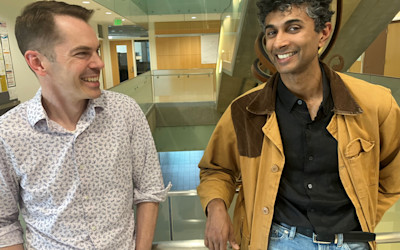
September 06, 2024 | by BBI Communications
Seeking ‘dynamic young people who are willing to dream big’ for his work at the Hutch
Read More
September 04, 2024 | by BBI Communications
‘Output from these AI models requires careful calibration before it can be used in clinical genetics…. Data must be tested against control variants and adjusted as needed.’
Read More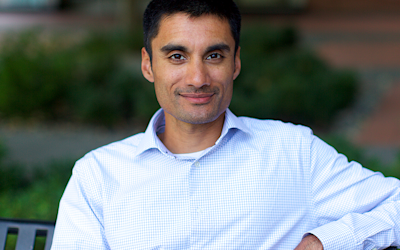
September 04, 2024 | by BBI Communications
Deadline to submit abstracts is rapidly approaching – 5 pm on September 27th
Read More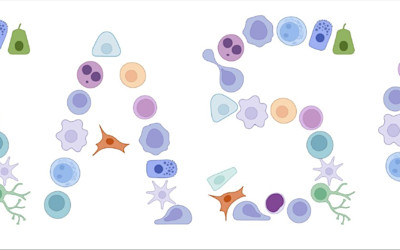
September 04, 2024 | by BBI Communications
Fostering belonging and unity among Puget Sound area researchers working in single cell genomics
Read More
August 19, 2024 | by Sayeh Gorjifard
Even before making strides in human genetic variant interpretation, Dr. Julia Foreman, Ph.D., always enjoyed studying the effects of mutations. “Genetics is fascinating, particularly developmental genetics,” she proclaims.
Read More
July 31, 2024 | by BBI Communications
For a 30-year-old, Sudarshan Pinglay has an impressive CV
Read More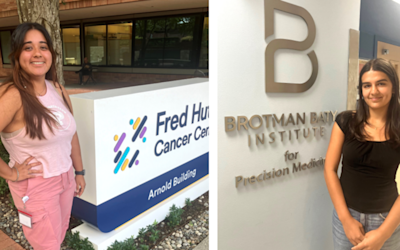
July 25, 2024 | by BBI Communications
‘There are always ways to apply your different skills to science’
Read More
July 22, 2024 | by BBI Communications
‘They have clarity and consideration of what lies before them in an academic career’
Read More
July 19, 2024 | by BBI Communications
Event will be October 28 at the Seattle Children’s Research Institute
Read More
June 24, 2024 | by BBI Communications
‘We want to people to understand the magnitude of problem researchers are facing. And develop some level of empathy for those dealing with rare diseases.’ Alex Nguyen, Ph.D.
Read More
June 17, 2024 | by BBI Communications
‘Genuinely interested in applying his knowledge of biology to help children with cancer, and brings a curiosity to his work that is infectious’
Read More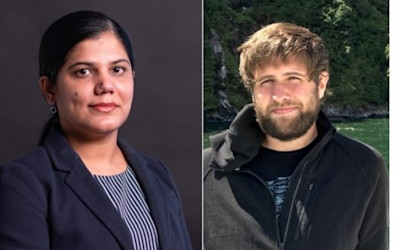
June 11, 2024 | by BBI Communications
‘An opportunity to test a wide range of machine learning approaches’
Read More
May 31, 2024 | by BBI Communications
BBI's Dr. Doug Fowler and Dr. Sumaiya Iqbal of the Broad Institute reflect on the 2024 Mutational Scanning Symposium and offer suggestions for the 2025 event
Read More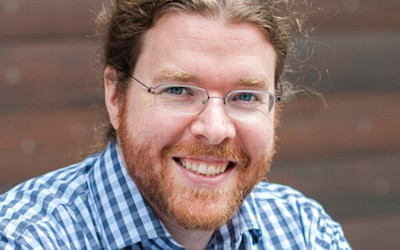
May 24, 2024 | by Sayeh Gorjifard
His early work and contributions helped launch the Atlas of Variant Effects (AVE) Alliance, where he is now a member of the executive committee and co-chair of the AVE Data Coordination and Dissemination workstream
Read More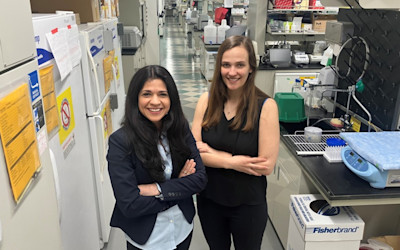
May 23, 2024 | by BBI Communications
‘An impressive body of work that will revolutionize the way we identify, understand, and treat different subtypes’
Read More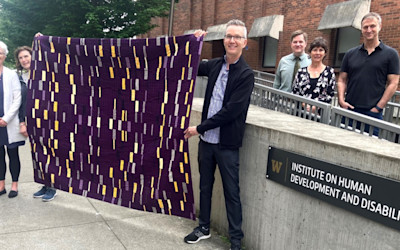
May 21, 2024 | by BBI Communications
Guild presents quilt to Genetic Medicine Clinic in appreciation of member learning her genetic variants
Read More
April 29, 2024 | by Mary O’Neill, Ph.D.
The Seattle Area Single Cell user group, otherwise known as SASC, held its first meeting on February13. If the results of that meeting were any indication of the group’s future, I am quite optimistic.
Read More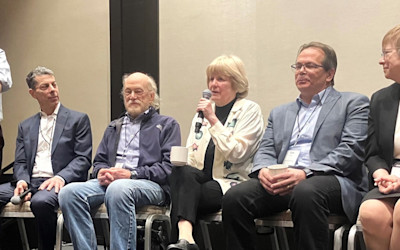
April 24, 2024 | by BBI Communications
Medical genetics ‘will become the soul of precision medicine in every field’
Read More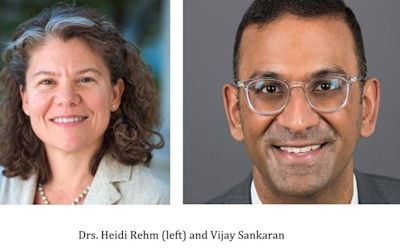
April 17, 2024 | by BBI Communications
'Advancing genomic medicine through global collaboration'
Read More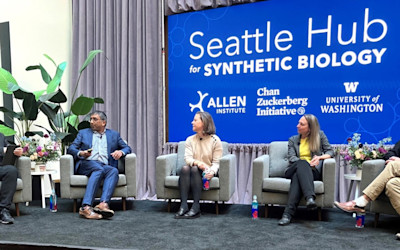
April 09, 2024 | by BBI Communications
The Allen Institute on April 1 hosted a celebration of The Seattle Hub for Synthetic Biology (Seattle Hub), which included a panel discussion. Here are excerpted remarks from each of the five presenters.
Read More
April 01, 2024 | by BBI Communications
‘You want to do something in the lab that matters within your lifetime’
Read More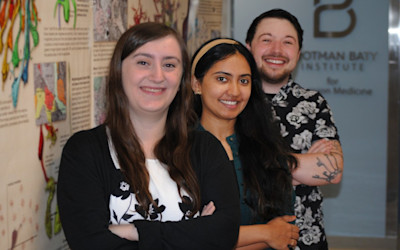
March 29, 2024 | by BBI Communications
Working under the direction of BBI’s Danny Miller, M.D., Ph.D., three graduate students, along with colleagues in the U.S. and five other nations, are working on research that promises to address one of precision medicine’s greatest challenges.
Read More
March 28, 2024 | by BBI Communications
‘Biotechnology as substrate for human creativity’
Read More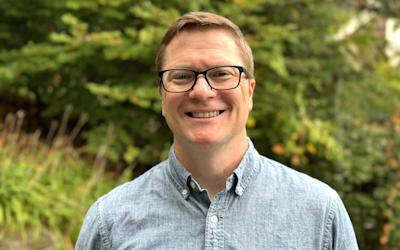
March 07, 2024 | by BBI Communications
[Editor’s Note: J.T. Neal, Ph.D., of the Broad Institute of MIT and Harvard, is leading the planning and organization for the 2024 Mutational Scanning Symposium.]
Read More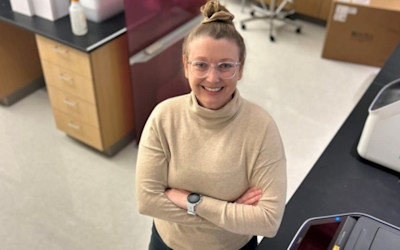
February 27, 2024 | by BBI Communications
This is the first in a series of articles on new faculty members at BBI's three institutions: UW Medicine, the Fred Hutchinson Cancer Center, and Seattle Children's Hispital.
Read More
February 21, 2024 | by BBI Communications
Three Young Scientists Participating in Groundbreaking Initiative
Read More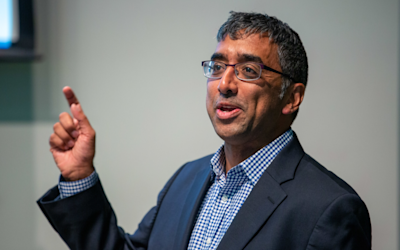
February 16, 2024 | by UW Medicine Communications
Time-lapse gene transcript profiling at the single-cell level during mouse prenatal development reveals this and other transformations.
Read More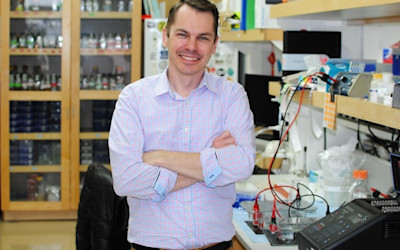
January 30, 2024 | by BBI Communications
BBI's Dr. Trapnell offers observations and insights into the Seattle Hub for Synthetic Biology
Read More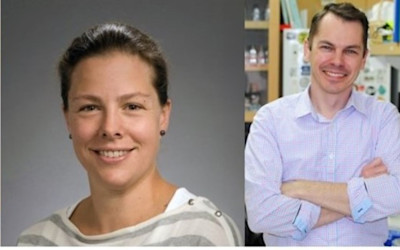
December 07, 2023 | by UW Medicine
‘Potential to transform how scientists study the role of cells and genes in human health by providing unprecedented clarity into how biological events unfold over time’
Read More
March 01, 2023 | by BBI Communications
The paper’s authors “generated a 4.2 million cell (combined) transcriptomic and epigenomic atlas across the brain of the rhesus macaque, the most widely used nonhuman primate model organism for studies of human perception, cognition, aging, and neurological disease.
Read More